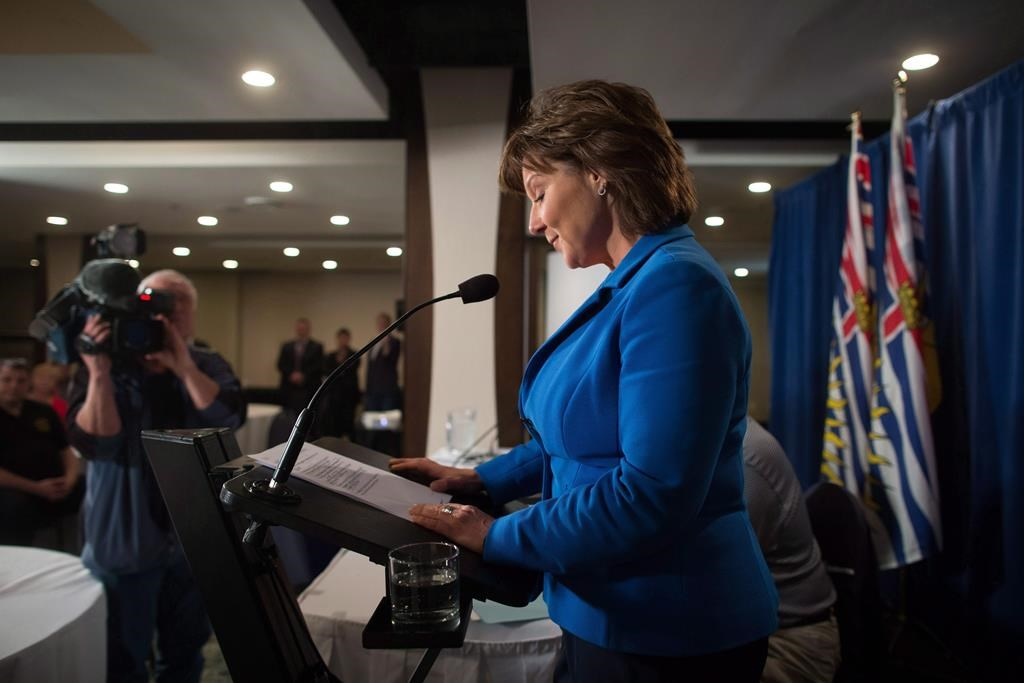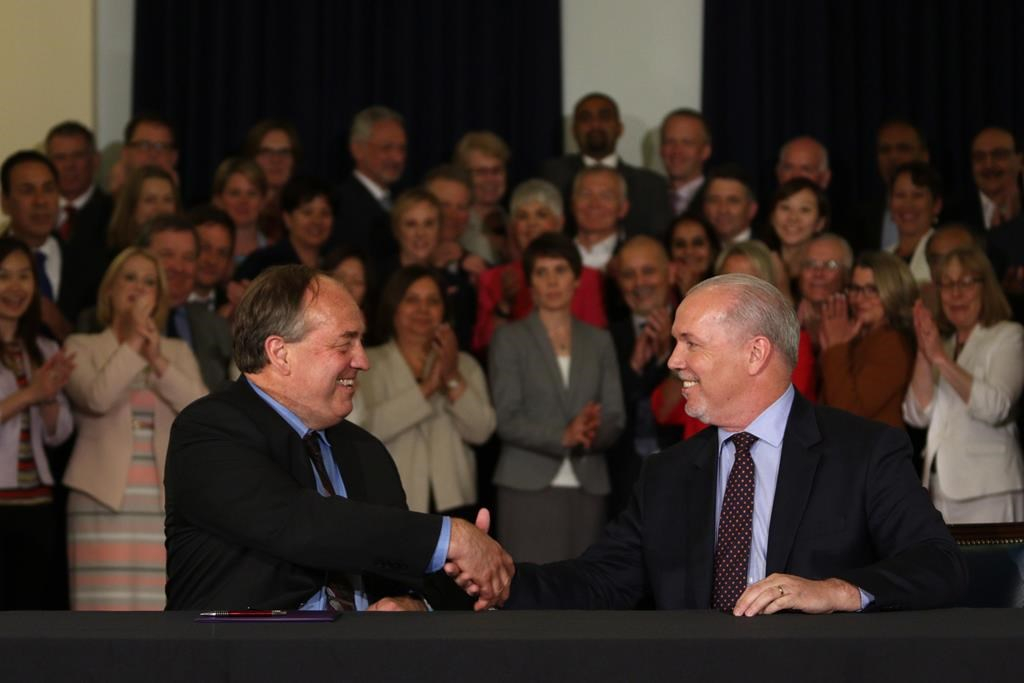It’s not often that the beleaguered moderate left in Canada has much to cheer about. But over the last few days, progressives have received a cornucopia of blessings in three provinces across the country.
In British Columbia, the BC New Democratic Party and BC Green Party formed an alliance to outnumber the governing Liberals after the close-fought May 9 election. If the aptly nicknamed 'GreeNDP' lasts long enough to accomplish only half of its big objectives, some important change will come to the corporate-controlled province.
If they pull it off, a successful referendum to bring in proportional representation to the voting system would be the greatest accomplishment, along with a ban on corporate donations to political parties.
The two parties also want to adopt the United Nations Declaration on the Rights of Indigenous Peoples, which would give indigenous people more deciding power on infrastructure projects that affect their land and water, and plan to increase the provincial carbon tax starting in 2018.
It will take some time to play out, but I don’t think the 'GreeNDP' will be able to stop the controversial Kinder Morgan Trans Mountain pipeline expansion — an oilsands project that already has provincial and federal approval. Despite steadfast opposition from both parties, thousands of British Columbians and First Nations, I think the feds will win a challenge to the pipeline in court.
Andrew Weaver "a loose cannon"
Success will require the NDP keeping Green Party leader Andrew Weaver — a loose cannon — under control, and hoping that still-Premier Christy Clark doesn't work some sort of political magic miracle to retain control of the legislature.
Globe and Mail journalist Gary Mason wrote earlier this week that B.C.’s elite will be not be happy about the changes coming.
"The business community will be apoplectic, of course. So will the rich and powerful, who will not only have lost a government they trusted to represent their interests but also the right to greatly influence the course of democracy in the province as a consequence of their wealth.
"No longer will they be able to cozy up to the Premier at intimate $10,000-a-plate fundraising dinners; those types of soirées will soon be outlawed, along with union, corporate and foreign donations.”
Isn’t this great? Let’s hope the coalition lasts.

Ontario pledge to low-wage workers
Amazingly, another victory for the working stiff came in Ontario earlier this week. Desperate to boost herself in the polls with an election coming, Premier Kathleen Wynne made a big plea to working people.
On Tuesday, she announced an increase in the province's minimum wage to $15 per hour from $11.40 by the end of 2018; new protections for vulnerable, low-wage employees; an easier path to unionization; and other measures to make life easier for workers in an economy that is shifting away from traditional job security.
Incensed by the Liberal premier's announcement, the country’s elitist paper, The Globe and Mail, ran an editorial: “Kathleen Wynne is a great NDP premier.”
Finally, in Nova Scotia on Tuesday night, it appeared for several hours that that the NDP would come away holding the balance of power in the legislature.
In the end, the incumbent Liberals managed to secure their second straight majority government. But United Church minister Gary Burrill, who was leading the NDP without a seat in the legislature, was nevertheless elected, defeating a Liberal to reclaim a seat formerly long held by New Democrats. Burrill is a hard-nosed social democrat who will be heard from in the future.
No doubt the corporate power brokers and their compliant governments will fight back as strongly as they can to reverse these few steps forward. It’s not often these days that progressives have much to celebrate across Canada, so we should cheer these victories while we can.






Comments
Why would progressives want to celebrate Nova Scotia's result? They most recently went from NDP to Liberal, and they haven't yet gone Conservative since the NDP majority in 2009. Further, the Conservatives saw an increase in popular vote.
The Kinder Morgan pipeline will not be built for financial reasons, the low price of oil and the inability of the company to find backers for the project. Of course the NDP-Green alliance will scare pipeline financial backers a little more, which is good.
I strongly disagree that Andrew Weaver is a loose cannon. He knows more than most and is passionate about BC Citizens being represented. If that passion is attributed to loose cannon behavior so be it. He also talks quickly, so maybe you are unable to keep up with his thoughts and therefore think he is al loose cannon. Also Sonja is working with him and brings her own form of reflection and groundedness, not to forgot Adam who has always been solid, responsive to citizens and articulate about the needs of BC. I understand the quest for reporters to create havoc and sensation. I just don't attribute that behavior to the National Observer.